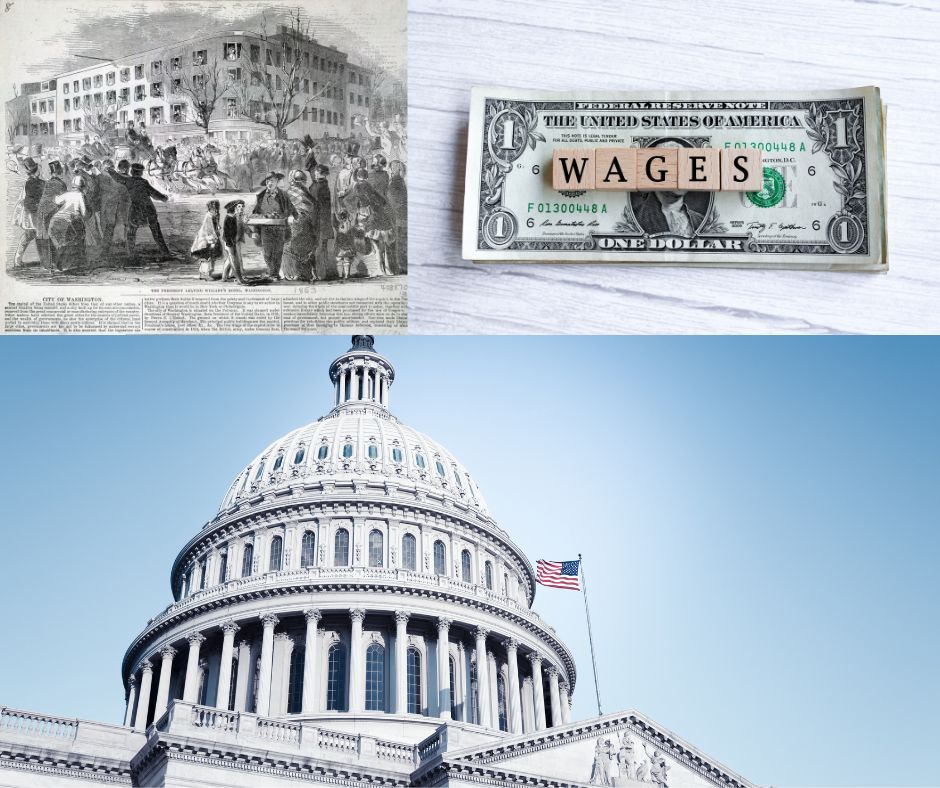Summary:
Venezuelan refugees are now a national concern in the United States. Approximately 7 million Venezuelans have fled their nation since 2014. Julian Zelizer writes that welcoming these immigrants is not a burden but a blessing. Immigrants represent a labour population that may support the U.S. economy. Texas, Arizona, and Florida governors should thank their Republican counterparts for the youthful and tenacious new additions to the local labour force.
According to short-term occupational predictions, Texas will require more than 26,000 new fast-food and counter employees by 2023. If sanity were to rule this nation, lawmakers would have understood that embracing these immigrants is not a burden but a benefit, mainly when tight labour markets exist. Governors busing immigrants across the nation should unite and support this move rather than fuel a national debate for political gain.
After years of relocation, Venezuelan refugees are now a national concern in the United States. Due to a humanitarian crisis and severe human rights violations, approximately 7 million Venezuelans have fled their nation since 2014, making it the second-largest displacement crisis in the world today, after Ukraine. Because of how urgent their condition is, they must go through seven nations to reach the United States, including the extremely risky Darién Gap, a jungle that connects South and Central America between Colombia and Panama. Many people fail.
It is unfortunate that despite all of this, Republican Governors Greg Abbot, Doug Ducey, and Ron De Santis were the ones to bring this issue to the public’s attention by using the immigrants arriving in their states—the majority of whom were Venezuelans—as their political pawns by sending them on buses, frequently misdirecting them, to cities in the northeast of the nation. Some people contend that these actions resemble human trafficking. We are discussing approximately 10,000 immigrants who have engaged in this deplorable conduct.
The governors should be developing wise policies for these immigrants and refugees, who, given a chance, would be nothing less than a significant benefit to the labour force of this nation.
In this period of tight labour markets and worker shortages, when inflation is already rising, welcoming these immigrants is not a burden but a blessing.
Humanitarian Action, an NGO that has been receiving and providing humanitarian assistance to thousands of these migrants as they arrive by bus in Washington, D.C., and New York City, shared data with me based on surveys of hundreds of these immigrants that demonstrate this enormous potential.
This immigrant group, which consists primarily of men of Venezuelan descent, is very young, with an average age of 30 and a range of 18 to 55. This is evident from the chart below, which compares the workforce in America to these immigrants according to data from the Bureau of Labor Statistics. In contrast to 20.4 percent of Americans, approximately 80 percent of these Venezuelan migrants are between the ages of 20 and 34.
Additionally, based on this information, immigrants represent a labour population that may support the American economy by providing much-needed basic labour or engaging in more complex jobs: Nearly 20% of them have earned advanced technical degrees or college degrees. In comparison, more than 50% have completed high school.
Many said they had worked in the construction and food industries when asked about their most recent job before moving. Others claimed to have held more difficult positions like nurses, technicians, or even engineers—all of which are currently in high demand and will remain so in the future, per the most recent BLS national predictions.
The governors would have looked at the labour demand statistics for their states if they had been genuinely engaged in making policy. According to short-term occupational predictions, Texas will require more than 26,000 new fast-food and counter employees, 27,000 home health and personal care aides, 15,000 customer service agents, and 9,000 nurses by 2023. Similar developments are anticipated in Arizona and Florida, where there will be an increase in demand for waitstaff, chefs, janitors, and cleaners, as well as software developers, accountants, and general managers of operations.
In reality, the governors of the receiving states, such as New York and Massachusetts, should be thanking their Republican colleagues for the youthful and tenacious new additions to the local labour force because these receiving states’ labour demand trends are comparable to those of the sending states.
For each doctor in Arizona to do her job, she must rely on several fundamental workers that complement her work, from drivers and cooks to assistants and nurses. This is why we see growing demand for these very different occupations, some of which are fundamental and some more advanced. And the doctor cannot perform her duties without these professions.
Thus, if sanity were to rule this nation, lawmakers would have understood that embracing these immigrants is not a burden but a benefit, mainly when tight labour markets exist. Labour shortages are fueling inflation that is already on the boil.
In this regard, President Biden has one immediate action he can take to enable these immigrants to work: he should expand the eligibility of the current temporary protected status for Venezuelans to include those who arrived after March 2021. This would grant work permits to these thousands of immigrants immediately. These governors, busing immigrants across the nation, should take advantage of this opportunity to unite and support this move rather than using taxpayer money to fuel a national debate for their political gain. By doing this, the governors may be sure that they are treating those in need humanely but also assisting them in realising their full potential in a new community they choose to call home.
This dispute should serve as a reminder that the immigration debate in America has to be more policy-focused than political.
Analysis by: Advocacy Unified Network

